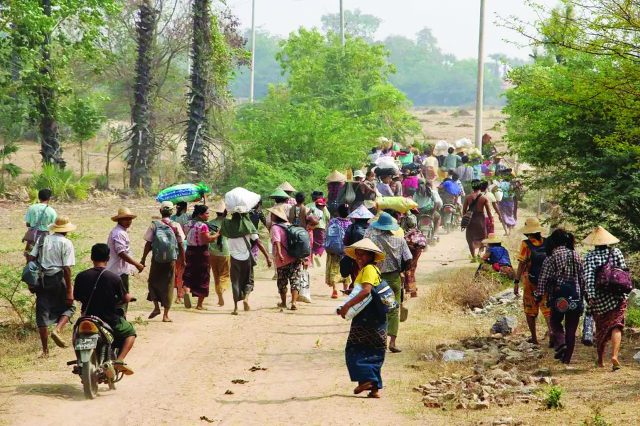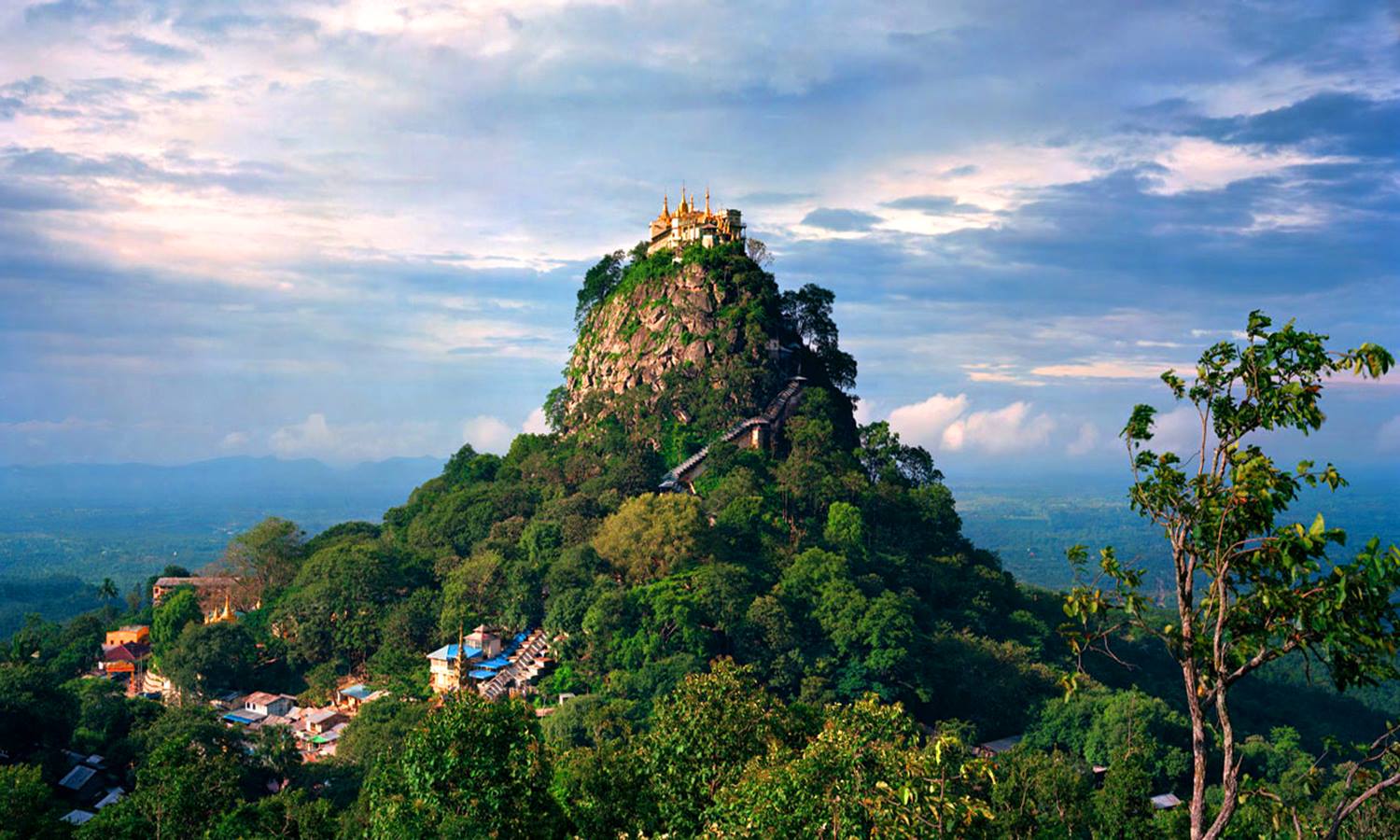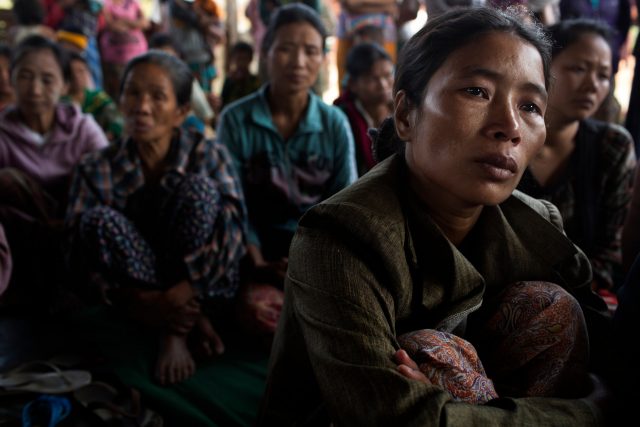Internet can be a magical place, but it can also be the one where things are always not what they seem. According to E-Commerce Association of Myanmar, many in the country has fallen victims to Facebook sponsored posts (advertisements) scams, where the sellers from border towns such as Myawaddy collected advance payments for (non-existence) goods, defrauding hundreds of buyers of their hard earned cash. Getting an item quite different from what is advertised is one thing, but getting scam of all your cash is hard to take and victims are caught between reporting to an establishment whose law and orders do not instil fear and an embarrassment of being a first-class example of a village idiot.
Unfortunately not every mistake is so benign and it is not news that there are scammers on the internet but you may have noticed that one scam in particular is currently everywhere globally.

A common way that it starts is with a weird text from a number that you do not recognise, e.g., Cindy… can we move lunch to five, when you are certainly not Cindy; or Rick, what time is our flight when you are not Rick and you definitely don’t have a flight booked; or hello is this the manager Joey from the flower shop; or is this Dr John, I’m Emily and is my horse recovering well! Most people would ignore messages like those but there are some kind souls who would respond right back and get sucked into a conversation and eventually, through a process popularly known as Pig Butchering, they can end up losing a lot of money.
It’s a scam with a striking name that newscasters cannot seem to get over. It’s called a Pig Butchering scam and it might sound like a gruesome name but that’s because the amount of money victims are losing is extremely large and painful. First, you feed the pig till it grow bigger and bigger before you finally kill the animal for pork and bones. It is exactly what it sounds like but the name makes a little more sense once you understand how the scam actually works in the world of cyber and counterterrorism threats.
In 2021, special agents from US covering internet scams started seeing this new scam called Pig Butchering. It just refers to raising little piglets fattening them up and butchering them later. Scammers are fattening up their victim with illusions of grandeur of wealth or love before bleeding them really dry. That is particularly vicious because imagine being a victim of this scam turning on the news and suddenly learning that the small handful people in his or her situation are the pigs. It might actually an honour to be compared to a pig and if you are thinking well, this seems like the kind of scam that’s been around for decades. That is only partially true but the way this one works is fairly
new and in the short time that it’s been around, it’s been massively successful.
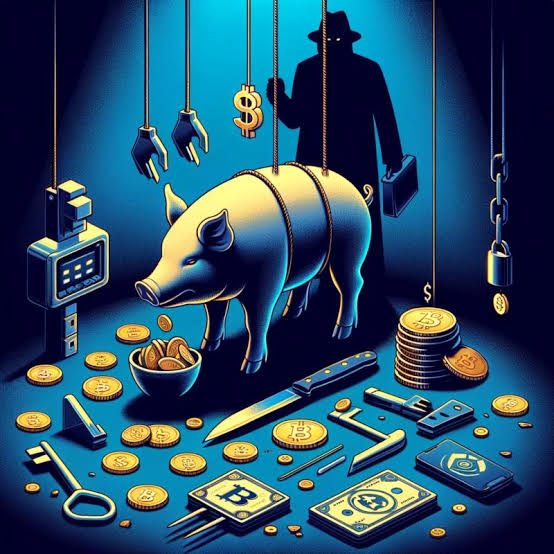 Just this year it was at the centre of a huge local news story in Kansas, USA, where it brought down a financial institution. Kansas State Bank Commissioner talked about the massive cryptocurrency scam at the Heartland Tri-State Bank in Elkart; a cryptocurrency scheme that the FBI now referred to as Pig Butchering. Commissioner said the victim was Shan Hanes, the bank’s CEO. He is now facing charges of embezzling nearly $50 million, a loss that caused the bank to fail last August.
Just this year it was at the centre of a huge local news story in Kansas, USA, where it brought down a financial institution. Kansas State Bank Commissioner talked about the massive cryptocurrency scam at the Heartland Tri-State Bank in Elkart; a cryptocurrency scheme that the FBI now referred to as Pig Butchering. Commissioner said the victim was Shan Hanes, the bank’s CEO. He is now facing charges of embezzling nearly $50 million, a loss that caused the bank to fail last August.
According to prosecutors, CEO got Pig Butchered. He sent his scammer the majority of bank’s holdings and the bank went under. It is extremely alarming for several reasons; among them is how banks work, because there should be at least one control or monitoring step between the awareness that the CEO gets tricked and whoops, the bank’s empty.
It’s estimated that as of 2022 this scam was taking people for a ride, more than $3 billion a year in the US alone and that’s almost certainly a massive undercount as it only includes people who reported their losses to the FBI. Global figures could be many times that amount.
Why it is easier to fall for than you might think?
Let’s start with where this merciless online scam all began. To do that, unfortunately, we do need to go back to the place that no one wants to go – the beginning of Covid. Pig
Butchering took off basically at the start of Covid because many of us were isolated and lonely, desperately looking for human contact online. This made us ripe targets. At the same time, organised crime groups from China running casinos in Southeast Asia, were in crisis as thanks to the pandemic, gamblers were not showing up. So these crime bosses turned those casinos into bases for online scam operations and from then on their managers and second fiddler scammers started identifying people and prayed on their vulnerabilities.
Let us walk through the basic steps. The first is to make contact and lure you (the target) in. In one real life example, this woman victim explain how her scammer who called himself Jimmy contacted her at a moment when she was dealing with cancer, the pandemic and the end of her marriage. First communication came as a very innocent message. She said wrong number but scammer came back saying she looked Chinese and asking if she was Chinese. She said yes. He said he had moved here just before Covid and
then Covid hit and so he was not able to go home and he was a lonely man in need of comfort. Jimmy would message her everyday. She remembered receiving these Emojis
with hearts. It was quite flattering for a middle-aged woman to meet a young man who finds her attractive. Of course that’s flattering because scammers are very good at telling their targets what they want to hear most.
One way of making contact is through those wrong number text but experts estimate that they only make up about a quarter of the initial contacts for this scam. The rest can come through sites like LinkedIn, dating apps, Instagram or Facebook places specifically designed for you to meet people that you do not know either for love a hookup. Scammers often research their target using social media where there is a lot of information about people so they can pretend to have something in common.
Another woman victim who met someone on a dating app only to discover that they shared an unexpected connection. He started asking questions about my family and my past experiences. It was a connection that felt even stronger when the scammer told her he came from the same town in China from where she was adopted. They kind of bonded
over that. That story started with him asking her questions about her life and ends with her giving him all of her money but regardless of how they start sooner or later we move on to step two turning the conversation toward money.
But even then there’s a smart twist because you will not be suddenly asked to wire money to a Nigerian prince with an obviously fake email or a lottery winning email from microsoft
or google. These are so history. In Pig Butchering, there is nodirect quest for money at all. Instead an opportunity gets presented to you. Another victim explains the moment when a guy that he met on a dating site started to reel him in. He spent at least a month, daily talking the victim in in cultivating the friendship. Initially the only talk about money was how much his new online (fictional) friend had made in crypto. After all the victim, like most of us, thought he knew how to protect himself from scams ‘you can invest with me and I’ll make you all this money’ and hence, he will not be giving out any money at all. That’s when he started saying the big ‘NO’ – you don’t give it to me, you establish your own account and I’ll guide you. That’s the cleverer hook here; you’re not sending the scammer money; they’re helping you set up and control your own account and everything seems more legitimate especially when an app is involved.
When is the last time you took a Grab taxi and think – oh I am getting into a nondescript car with someone I’ve never met. I would never do that. But wait, if I can do it from my phone, well in that case, here’s my address and particulars. Now you know where I live and that I won’t be home for the evening. We are programmed to believe that everything’s safe where there’s an app involved and the fact the investment is often in crypto can be persuasive for multiple reasons. First, who really knows how crypto works. But people have made money on crypto so it’s not unreasonable to think you might meet one of them and they could give you some tips. On top of that, you might not be super familiar with how a trading platform operates or even what one looks like.
Scammers have already created incredibly plausible looking platforms which seems to have all the details and functionality of a real one and everyone could be fooled by that. Also some scammers use legitimate apps that allow anyone to build a trading exchange. The problem is there are tools that scammers can use to simulate fake results on those apps while taking your real money.
This gave one victim false confidence in Metatrader – it looks just like any kind of normal trading interface that one would use that’s available in the Google Play Store. It’s also available in the Apple AppStore. It’s an app that has a lot of good ratings and that was one of the things that made him think that this whole operation was legitimate.
You believed that your investment was making money if you’re trading on a legitimate trading interface. You see the profits and losses over time. This is exactly what you saw if your friend told you to download an app and you saw it in the App Store with good reviews, you might assume everything on it was legitimate even before you saw Metatrader logo. Some scammers even set up additional features like two Factor authentication or customer service hotlines.
One woman victim did try her best to do due diligence on the site that she was recommended by the scammer and came away convinced that it was real. There was a legal secretary involved in another state vouching association with a law firm where she was sending her money to. She was real, the victim could verify her so it was very complex and well rehearsed operation. She spoke with a legal secretary and a law firm before sending money and that is more vetting than any of us intelligent people could have done.
At this point of the process things might look pretty good for the people
getting scammed. You’ve sent a bit of money to a legitimate looking site through an account that you control and your new friend’s trading tips seem to be working so
maybe you send a little bit more and pretty soon you might have a fair amount of money tied up on this trading platform. But when you eventually go to withdraw it, that is where we hit the final step of this process.
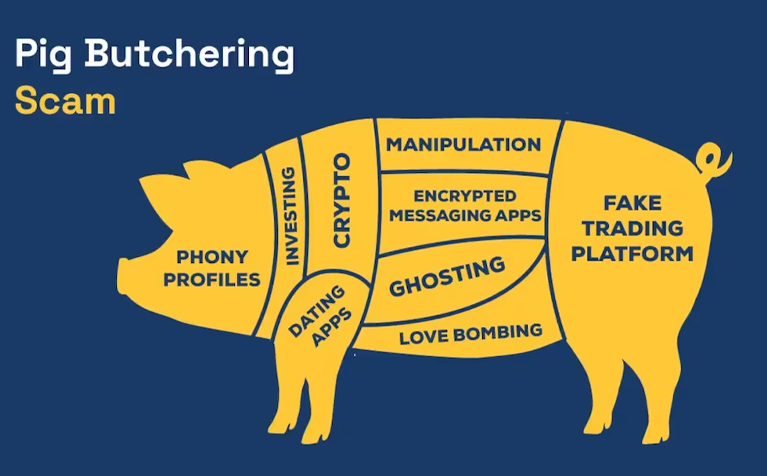
Remember that woman mentioned earlier whose online friend claimed that he was from the same town where she was born. She even had convinced her father to invest as well. They had seemingly made a bunch of money and then this happened. By December of last year, their accounts showed a combined balance of $1.2 million. That’s when she decided it was time to cash out that’s when the site told her before she could withdraw her money she’d have to pay a hefty tax bill of rough $380,000, That’s when she eventually realised something’s not right, it wasn’t real cryptocurrency investments after all and all her and her father’s funds had gone into the scammers pockets – all in all $390,000 stolen. The tax bill was just the ultimate attempt to squeeze them dry one last time!
This isn’t the only brutal story. One woman lost $350,000, another guy lost $300,000 and the first woman victim who fell for Jimmy sent him two and a half million, as she was dealing with terminal cancer herself. It is traumatic and it is humiliating and it took extreme courage for those people to come forward.
That is partly why experts think the $3 billion per annum figure that they have estimated is way too low because most people who’ve been scammed like them simply do not report their losses out of embarrassment. At this point you have every right to be furious with the people on the other end of all of these messages. You want to see them taken down at the very least.
Who’s behind it?
Reasonable people could also fathom that the persons on the other end of that phone (the scammers) might not be the one you should be mad at, because these post-Covid scams were being done in former casinos of South East Asia by organised crime syndicates. It turned out they are not great bosses after all, as one Indian man named Rakesh recalled. He said he was forced to work for more than 11 months without pay for a Chinese criminal gang. Rakesh said he first flew to Thailand for what he thought was an IT job. Instead he says he was tricked into crossing the border to Myanmar, where a Chinese gangster told him to work or else. He threatened to kill him. The job required Rakesh to spend 16 hours a day on social media with a fake profile targeting Americans. It would be a complete torture to be forced to spend 16 hours a day on social media unless you love it or because you are 15 years old and the algorithm has addicted you to it. A lot of these organisations are using people who’ve been human trafficked after being lured to these compounds of organised crime under false pretences. People like Rakesh are actually the victims of a scam themselves basically – they might see job ads for skilled positions as translators or IT specialist in another country. They then go through a whole application process with some going through up to four seemingly legitimate online interviews and fly to their new job, at which point they suddenly learn their new bosses have their travel and other documents confiscated and they now cannot leave.
Back in 2022 Rakesh estimated that tens of thousands of people had been tricked in this way and a more recent UN report estimated that hundreds of thousands of people have been forcibly engaged in this scheme. UN also said most victims are confined to the scam compounds and their screens are always monitored by the members of the organised crime groups. Once they are inside, they have been provided with fake profiles to try and hook people in.
Rakesh found himself acting out as a Russian girl all day every day, using the fake profile of a beautiful Russian girl. He said he needed to scam the people posing as a Salt Lake City based investor named Clara Simonov. Rakesh then flirted online with potential targets. 70 to 80% fall for fake love.
Even after scamming as many people as he possibly can, Rakesh’s boss would not let him leave the job.
The whole operation is highly organised and set up to get around the usual ways that you might detect a scam. For instance some organisations generate their own photos for the profile so that they cannot be reverse image searched via google. Employees are given detailed manuals that guide them through every step of the scam process.
They were told to target people who looked wealthy and successful. One advises even on daily activities for scammers – on the first day talk about things like your name age, occupation and hobbies then the next day, talk about your emotional experience with a message divided into two paragraphs and then on the third day, talk about your entrepreneurial experience, etc. They’re even given tips on how to break down people’s defences. Several of these manuals carefully explain how to build trust and exploit weaknesses in their so-called clients, e.g., be funny, make clients fall in love with you so deeply that they forget everything. The chilling thing is if you’re funny enough, you can make people forget a lot of things whether it’s common sense internet safeguards, lessons from previous relationships or that they’ve been accidentally learning about financial fraud and human trafficking for the last twenty minutes. And if you thinking what why don’t authorities just shut these compounds down, sometimes they themselves are in on it.
One Chinese man named Lee who was trafficked to a scam centre in Cambodia explained what happened when he did the obvious thing on his second day in captivity. When He emailed the Chinese Embassy he was advised to call the civil police but the police never came. The property management came instead. They apparently knew that he had called the police. The managers then sold him to another scamming company because he had called the police. The managers of the scam centre said they had to take care of the police with at least $4,000 and I had to pay for that too. Hence the sale!
The authorities were not going to help him, which actually makes sense when you learn that according to UN estimates Pig Butchering scams in Cambodia brings in an amount equivalent to half the country’s GDP which is worrisome because if something generates that much money for a country, you do not shut it down. You spin it off and pray the magic works a second time. The conditions in these compounds can be brutal. That trafficked man took photos of abuse of how some coworkers had been beaten. Even some Facebook videos in Myanmar showed workers being chained to beds at night and being tasered with electric rods when they failed to meet targets or misbehave the slightest.
Lee, who managed to get out of the scam centre now, works to free others. The stories of what he’s seen are warning for others and hard to watch such as a man get beaten up very badly he had injuries all over his body. Lee contends it was this man who was reportedly found hanging just hours thereafter. His phone is full of messages from Chinese citizens desperate to be set free from shackles of scam companies. There were also videos of abuses Lee said he received directly from victims inside the scam industry or found them posted in Social Media Group chats. To say they are shocking and absolutely horrifying would be complete understatement.

And what we can do to protect ourselves and our loved ones from getting scammed in the future?
When you know all of this, it starts to change who exactly you are mad because suddenly the individuals on the other end of the phone do not seem to be having fun sending out messages to scam you. From now on whenever you get a sexy text from a new stranger, good luck not thinking is this a man who was just beaten in a border work camp in autonomous and EAO controlled regions in Myanmar.
We cannot say that every scammer is someone who was kidnapped, tortured and forced to swindle but even if not everyone who is doing this is trapped or coerced, the very fact that many fall into this category, is still a huge problem. What we can do here when it comes to those imprisoned in these compounds is going to take collaboration between international law enforcement agencies. So, unless you are the head of Interpol there’s not much you personally can do now in wherever country you are in.
Platforms like Facebook should be doing way more to prevent the creation of fake accounts that target people because it’s happening on their watch. Scammers are using
sponsored posts. Perhaps the most effective way to stop this from happening is to make it less lucrative by having fewer people fall for it. Awareness of this scam is key. This is one of those rare cases where raising awareness is in itself genuinely useful. Because hopefully you’ve read here in MI today, this could happen to someone you know. This hasn’t just sucked in old people or those who aren’t tech savvy. It managed to reel in a bank CEO in the first world country of USA. Everyone has an image of the type of person who susceptible to getting scammed in their heads but unless that image is in a mirror standing right in front of you, you might be wrong.
Thus, as a general rule whenever a stranger online says either I love you or recommends crypto within a month of talking to you, worry honestly even if they do not turn out to be scammers. Those are pretty good red flags to be looking for. It’s worth telling your friends and family about Pig Butchering too. If you know someone who’s been scammed like this, try to be kind. It is just human to want companionship and it’s actually a nice quality to be trusting of people. It sucks that the internet which should be a way to alleviate loneliness can be turned into a tool to exploit it. Maybe if we all look out for one another, we can ensure that the worst mistake anyone ever makes on the Internet might just be inadvertently buying an excellent Christmas tree for something totally different upon arrival. I am quite sure you have all experienced that in life, just like myself.

